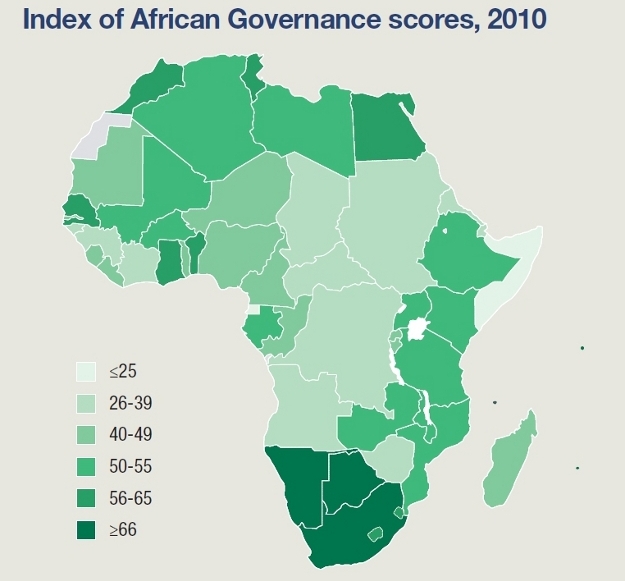The Ibrahim Foundation was set up in 2006 to stimulate debate on good governance in Africa. Its annual Index of African Governance provides criteria to assess progress made in governance standards
Global: Why was the Ibrahim Index of African Governance created, and how has it been received across the continent, by both governments and civil society?
Hania Farhan: The Ibrahim Index was created in recognition of the need for a quantifiable tool with which to measure governance in Africa. One of the things the Foundation has set out to do is to demystify conversations around governance and to anchor the discussions in data. In this way the Index is designed to serve as a tool for governments, parliaments, civil society and citizens to assess progress and compare performance.
The Index is unique in assessing governance with a focus on outcomes and delivery to the citizen – looking at indicators that assess services delivered rather than promises made – in four key areas: Safety and Rule of Law; Participation and Human Rights; Sustainable Economic Opportunity; and Human Development. The indicators are proxies for the quality of governance. It is therefore a citizen-oriented, outcomes-focused tool for all stakeholders to hold constructive dialogue around governance.
The Index is in its fourth year. It has become a respected and useful tool for many stakeholders working on governance issues in Africa. Reception to the Index has been varied across governments and civil societies in Africa. Most governments naturally feel that they should be performing better than they are and, in contrast, civil society is more likely to question the progress seen in the Index. We have seen many examples of organisations using the Index in various ways, such as in parliamentary debates, by multinational companies, or by governments and donors referring to the Index, and using it to provide context or as a guide supporting allocations.
The broad 2010 Index findings are that countries have often been improving their scores in sustainable economic opportunity and human development even while there has been a decline in the measures of safety and rule of law, participation and human rights. What does this say about the quality of governance across Africa in general?
The Index is a composite, and therefore small progress made in some of the underlying categories may not necessarily be reflected in the final overall score. In addition, the diversity of countries in Africa, with some of the highest governance standards alongside some of the lowest, means that continental trends are unlikely to be particularly instructive. In fact, the Index shows us that there is huge variance in performance across countries, with some progressing significantly from low bases, others being strong performers which continue to improve, and some countries deteriorating in score. Therefore, we recommend looking at countries on a case-by-case basis to appreciate how well or otherwise countries performed.
Do you think many African governments are genuinely motivated by the desire to make improvements in democracy and human rights or do you think, at their present stage of economic and political development, they are more likely to prioritise economic and development issues?
This is an ongoing debate and there are numerous different perspectives on the issue. We have seen from experience and evidence across the world that in the long run, the discrepancy between political rights and economic development is unsustainable. Gains need to be consolidated, and unless progress is made on both the political and the economic sides of governance, gains may well be reversed. Moreover, since the African Charter on Human and Peoples’ Rights came into force in 1986 there is a clear consensus on the part of African governments of the need to focus on human rights and governance as core aspects of the development of African countries.
Given the paucity of comparable and up-to-date official data available for all countries, what improvements do you hope to make to the methodology of the Index in the years ahead?
The methodology used to compute the Index is not affected by the paucity of data or their lagged nature (absence of data, however, does affect the margins of error). The main implication of having old and patchy data is that many very important indicators – such as maternal mortality rates and income poverty rates – have to be excluded from the Index.
Beyond the needs of the Index, it is crucial that more efforts are made to collect better and more recent data for all the countries in Africa. Policies – whether in the areas of governance, economic and social areas, etc – can be deemed successful or otherwise if they are accompanied by rigorously collected data that shows trends and evaluations. Evidence-based policies require that there are up-to-date and credible data on each dimension that is being assessed.






